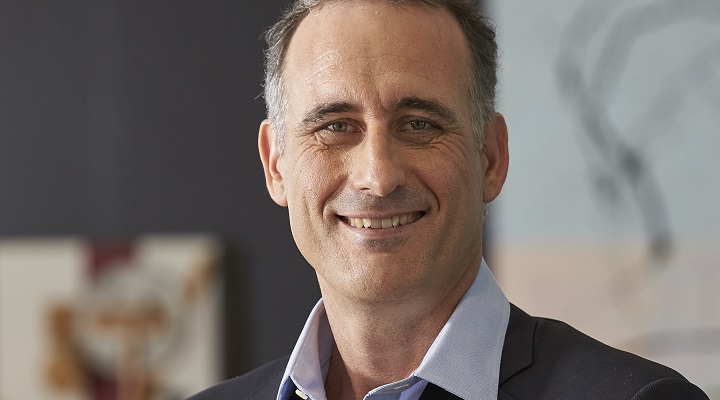Retail conglomerate Wesfarmers has reiterated its offer to turn some of its bricks-and-mortar locations into vaccination centres as Australia’s vaccine rollout picks up pace. Following a virtual meeting between business leaders and the government yesterday, chief executive Rob Scott said Wesfarmers is “committed to doing what we can to encourage vaccination and support the vaccine rollout, this year and beyond”. “We are happy to explore ways we could work with the third-party provi
providers we use to offer workplace flu shots to our team members across the Group, and look at ways to do that for Covid vaccines,” Scott said in a statement provided to Inside Retail.
“In relation to supporting vaccination of the wider community, some of our locations may be suitable as vaccination points, especially standalone sites like Bunnings and Officeworks, and in regional locations, but not all sites will be suitable or make sense.”
Woolworths Group has also offered to play a proactive role in the vaccine rollout with federal and state governments.
“As Australia’s largest private employer, we’ve rolled out flu vaccinations to our workforce over many years with specialist health providers,” Ross Spencer, Woolworths Group’s head of Covid response, said in a statement on Tuesday.
“We’d welcome the opportunity to do the same with the Covid vaccine, particularly for our frontline teams providing an essential service to Australian communities.
“We’re also open to offering up our facilities to governments for public vaccine pop-ups if it’s helpful.”
Coles noted that it has been working with state and federal governments throughout the pandemic, such as introducing enhanced safety and contact tracing measures, and delivering essential supplies for vulnerable members of the community, and will continue to do so during the vaccine rollout.
“We also continue to encourage our team to get vaccinated and they can use personal leave to attend appointments,” a spokesperson for the supermarket told Inside Retail.
Slow rollout
Since the first Covid-19 vaccine was administered in Australia on February 20, the government has struggled to stay on track with its target of completing the rollout by the end of this year.
As of July 2, only 30 per cent of those eligible for the jab in Australia (age 16+) had received a first dose of a Covid vaccine, including 50 per cent of over 50-year-olds and over 70 per cent of over 70-year-olds.
Part of the problem is due to insufficient stock, with a deadly second wave in India, where the majority of Covid-19 vaccines are manufactured, disrupting global supplies in recent months. Fears about rare but potentially deadly blood clots from the AstraZeneca vaccine have also impacted demand in Australia.
But with more supplies of the Pfizer vaccine on the way, and the emergence of the Delta strain encouraging some people who had been holding off to get vaccinated, the rollout is expected to accelerate.
Leaders at Wesfarmers, Woolworths, Qantas and other big businesses at yesterday’s meeting have all agreed to write to their workers about the importance of being vaccinated, according to Treasurer Josh Frydenberg.
“The Commonwealth will work with the business community about that particular message,” Frydenberg said at a press conference on Tuesday.
“One of the most important things we can do is to encourage and motivate people – our teams, their families, and the wider community – to get vaccinated,” Scott said.
“We can do that by helping to explain why it is important, in all the many languages we speak in our country.”
Paid leave and travel vouchers
Incentives, such as paid leave to get vaccinated during working hours, which Wesfarmers is offering to its permanent team members, could also help boost the uptake.
Last month, online travel business Luxury Escapes announced it will give $200 travel vouchers to the first one million Australians who start their Covid-19 vaccination program prior to September 30.
“At Luxury Escapes, we recognise the crucial role the vaccines will play in ensuring borders open so Aussies can travel again,” Adam Schwab, Luxury Escapes’ CEO, said when announcing the giveaway last month.
“We hope that giving away $200 million in incentives to Australians who are getting vaccinated will give our vaccine roll out a massive boost and inspire other businesses to follow suit.”
For Luxury Escapes, the slow rollout of vaccines in Australia has had a significant negative impact on the business.
“The slow rollout is stopping us from getting our revenue back on track,” Schwab told Inside Retail.
He is optimistic this will change as additional supplies become available and lockdowns spur more people to get vaccinated. Theoretically, he believes Australia can get to where the UK is with its vaccine rollout and reopening in about four months’ time, but may need the help of businesses to do so.
“I think what we’re going to see is a significant jump in supply in September and October, and that supply has to be distributed and put in people’s arms. And if GPs, pharmacies and hubs can’t do enough, and if companies like Woolworths and Wesfarmers can help with the rollout in some way, all the better,” he said.
“If we can open two months earlier, that’s material. Every day counts.”
How retailers could really help
By that same token, Troy Bilsborough, managing director of Provocate, a C-suite strategy consulting firm, believes large retailers should be using their international connections to lobby for Australia to receive more vaccine stocks now.
According to Provocate’s latest VaxEnomic Forecaster, Australia isn’t expected to complete its vaccination rollout until closer to March 2022, and international borders won’t reopen in full until September 2023, based on the government’s own budget formula.
“Australia needs 221,000 jabs in arms per day to get its vaccination rollout back on track for the end of the year. We’re currently doing half that and don’t have the stocks to catch up for at least another three months,” Bilsborough told Inside Retail.

